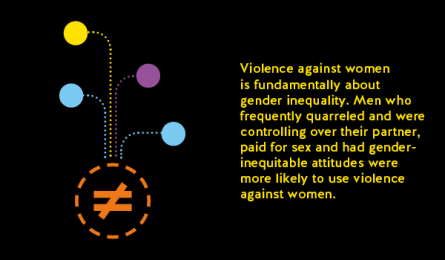 |
The Sri Lankan section of the study was conducted in Colombo, Nuwara Eliya, Batticaloa and Hambantota, with respondents answering sensitive questions anonymously to try and ensure honest disclosure.
15% of men surveryed in Sri Lanka admitted to having committed rape, with the majority of cases involving rape of a partner. Marital rape is not criminalised in Sri Lanka unless the husband and wife are judicially separated.
65% of these men said they had committed rape more than once, with 40% committing their first rape before the age of 20. The motivation in the vast majority of cases was sexual entitlement, with another 20% saying they did it because it was “fun” or they were “bored”.
Most alarmingly of all, only 3.2% of those who admitted rape had been arrested, and only 2.2% had been jailed – or in other words in 96.5% of rape cases the rapist had experienced no legal consequences. Only 34% even said that they felt worried or guilty about what they had done. Both of those figures are the worst of any country involved in the study.
And this cannot be blamed on the sample size or the men who happened to respond – Rosy Senanayake recently revealed in parliament that only 600 perpetrators of sexual abuse had been remanded in Sri Lanka out of 300,000 cases, or 2%. There have been a spate of shocking statistics about violence against women and children in the country recently, including the fact that a women is raped every 90 minutes in the country, 95% of women who use public transport experience sexual harassment, and 3-5 children are raped every day.
Despite this, 65% of men said that the law made it too easy to bring charges against a rapist.
The research was aimed at finding out why some men committed violence against women, and their conclusion was that gender inequality, gender norms and sexual or relationship practices are the deciding factors. Men who have experienced abuse themselves or have paid for sex are more likely to commit rape, but it is “influential narratives of masculinity that celebrate toughness, heterosexual performance” and “a man’s control over women” that have the most influence over a man’s capacity for violence.

The authors of the study say that “work to prevent violence against women must expand beyond efforts to change individual men” and move towards transforming social norms related to the acceptability of violence against women, to creating masculinities based on respect and equality rather than violence and control, educating the young, and creating violence free environments for children.
However, one of the 7 main recommendations of the report was to “End impunity for men who rape”, and judging by the figures returned for Sri Lanka, that is the factor that the country needs to address most urgently.
RS